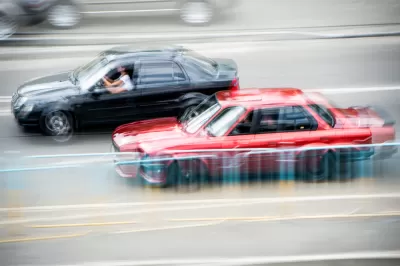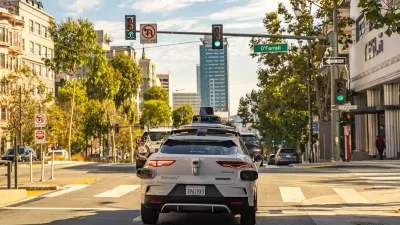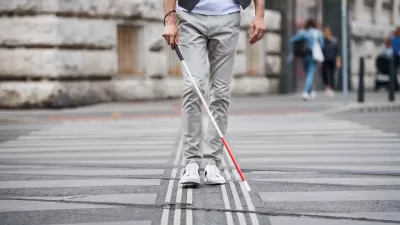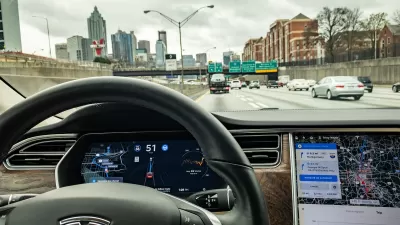General Motors recently cancelled development of "Defensive Driving" software in its autonomous vehicle program. The announcement came just days after Ford announced it had cancelled the development of similar "Safe Driving" software.

It's still unclear whether self-driving cars will reduce traffic, but the doesn't mean they'll ever have to reduce their speeds.
Two major automakers have announced the demise of software development programs that would have forced self-driving cars and other autonomous vehicles to put safety first on the roads this week.
On Tuesday, Ford announced that it would no longer develop "Safe Driving" software for its self-driving car program. Earlier press announcements described Safe Driving software as "basically the golden rule behind the wheel," and promised that self-driving cars would always perform like they were driving on the streets of their childhood.
"We found that most consumers have no desire for their future self-driving cars to drive like their grandmothers," said Vern Periculosus in an email response to questions. "We also found that most engineers don't want to build a car to drive like their grandmothers."
Bipartisan conflict followed the announcement, with Democrats raising concerns about the thousands on layoffs among wealthy donors in the Silicon Valley, and Republicans accusing the program of being a "democratic ploy to make cars the new plastic straws."
The Ford announcement scarcely had time to settle in on Capital Hill before GM followed with its own announcement of layoffs and plans to build a more aggressive, potentially lethal self-driving cars. Earlier reviews of GM's now defunct "Defensive Driving" software, called the experience of riding in a GM self-driving car set to "Defensive Driving" like hearing "Summertime" by DJ Jazzy Jeff and the Fresh Prince for the first time.
Speed is a factor in one-third of all traffic fatalities, according to the Vision Zero Network. But in the future, software will be taking the risks instead of humans, according to the consequences of these announcements. When asked if the companies had any evidence that robots will make better choices than humans on the roads, Periculosus evaded.
The decision is based on precedent, according to Periculosus, because car companies could have locked engines to prevent cars from traveling at unreasonable and unsafe speeds for decades. "Consumers have always preferred speed over safety, and they always will," said Periculosus.
FULL STORY: GM: No Demand for 'Defensive Driving’ Mode in Self-Driving Cars

Alabama: Trump Terminates Settlements for Black Communities Harmed By Raw Sewage
Trump deemed the landmark civil rights agreement “illegal DEI and environmental justice policy.”

Planetizen Federal Action Tracker
A weekly monitor of how Trump’s orders and actions are impacting planners and planning in America.

The 120 Year Old Tiny Home Villages That Sheltered San Francisco’s Earthquake Refugees
More than a century ago, San Francisco mobilized to house thousands of residents displaced by the 1906 earthquake. Could their strategy offer a model for the present?

Ken Jennings Launches Transit Web Series
The Jeopardy champ wants you to ride public transit.

BLM To Rescind Public Lands Rule
The change will downgrade conservation, once again putting federal land at risk for mining and other extractive uses.

Indy Neighborhood Group Builds Temporary Multi-Use Path
Community members, aided in part by funding from the city, repurposed a vehicle lane to create a protected bike and pedestrian path for the summer season.
Urban Design for Planners 1: Software Tools
This six-course series explores essential urban design concepts using open source software and equips planners with the tools they need to participate fully in the urban design process.
Planning for Universal Design
Learn the tools for implementing Universal Design in planning regulations.
Clanton & Associates, Inc.
Jessamine County Fiscal Court
Institute for Housing and Urban Development Studies (IHS)
City of Grandview
Harvard GSD Executive Education
Toledo-Lucas County Plan Commissions
Salt Lake City
NYU Wagner Graduate School of Public Service





























